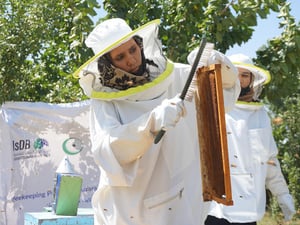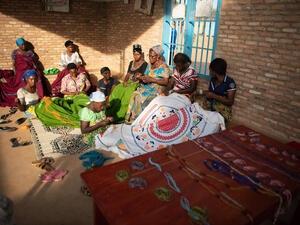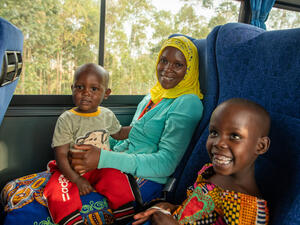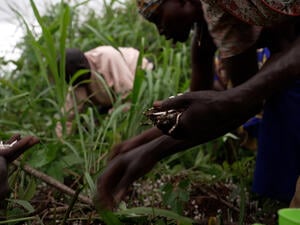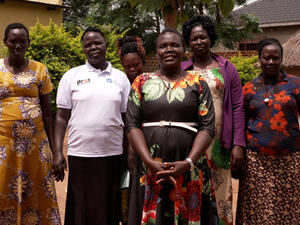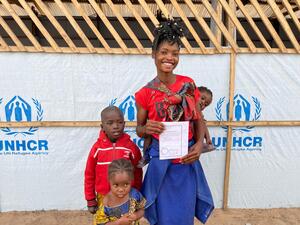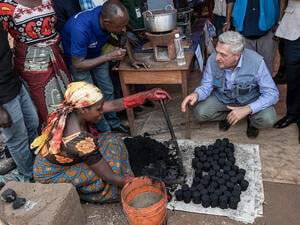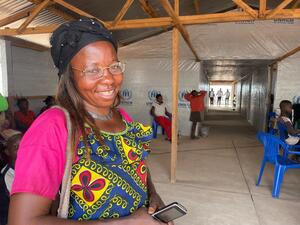Afghan returns pass 50,000 in first eight months, up on last year
Afghan returns pass 50,000 in first eight months, up on last year
About a third of the returnees went to the provinces of Kabul and Nangarhar.

Afghan refugees wait by the buses that will take them back home.
KABUL, Afghanistan, August 28 (UNHCR) - More than 50,000 Afghan refugees have returned from exile in Pakistan and Iran so far this year, up more than 10 per cent on the first eight months of last year.
From January-August, UNHCR helped an average of 213 refugees repatriate every day compared to 190 a year earlier, when 45,000 returned in the first eight months. Of the 50,000 returnees this year, some 40,000 came from Pakistan and just over 10,000 from Iran.
About a third of the returning refugees went to the eastern provinces of Kabul and Nangarhar, with about 11 per cent heading to Kunduz province in the north. The other most popular destinations were Herat, Baghlan, Kunar, Kandahar, Paktya, Balkh, Logar and Laghman provinces.
More than 5.7 million people have returned to Afghanistan since the fall of the Taliban government in 2001, including some 4.6 million with UNHCR help. The return movement continues but more than 3 million people remain in exile, mostly in Pakistan and Iran. Many fled more than 20 years ago during the Soviet occupation, but large numbers were born in exile.
Many of those returning from Pakistan this year cited the high cost of living, especially food and fuel, increased competition for jobs and escalating security concerns in Pakistan's Khyber Pakhtunkhwa province. The level of return from Iran, where 1 million Afghan refugees still live, remains stable.
UNHCR's representative in Afghanistan, Peter Nicolaus, praised the two neighbouring countries for hosting large numbers of refugees, while calling for "continued support [to Pakistan and Iran] from the international community to meet the demands of hosting such large numbers."
Whilst most of the returnees have gone to their places of origin, some have been unable to return to their home towns and villages for a variety of reasons, including lack of available land or shelter, few employment opportunities, food shortages and soaring prices.
UNHCR helps each returnee with a cash grant of about US$150 to cover transportation and other expenses. The most vulnerable receive additional support according to their needs.
"While the humanitarian needs of returning refugees remain extensive, investments in long-term development programmes are required to enable sustainable return and reintegration and to improve Afghanistan's present limited capacity to effectively absorb future return," Nicolaus stressed.
This is the objective of a "solutions strategy" developed earlier this year by UNHCR and the governments of Afghanistan, Iran and Pakistan. Key aims are to boost job opportunities and provide access to basic social services.
By Nader Farhad in Kabul, Afghanistan

